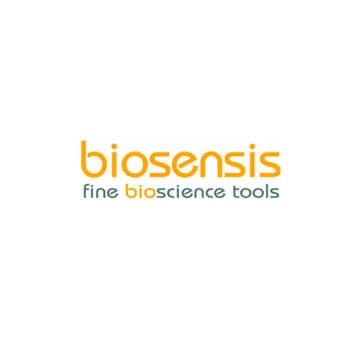
Supplier:
Aviva Systems Biology IncorporatedMYOGLOBIN ENZYME IMMUNOASSAY TEST KIT (96 Wells)
In the absence of skeletal muscle trauma or other factors associated with a non-cardiac related increase in circulating myoglobin, its levels have been used as an early marker for myocardial infarct.4,6,7 A number of reports suggest using the measurement of myoglobin as an aid in ruling out myocardial infarction5,8 with negative predictive values of up to 100% reported at certain time periods after the onset of symptoms.9-15 Unlike the other cardiac enzymes such as creeatine kinase and the MB isoform (i.e., CK and CK/MB) which do not reach serum levels until several hours post-infarction (approx. 19 hours), myoglobin levels can be expected to peak within 6 to 9 hours.16
The Aviva Myoglobin Enzyme Immunoassay provides a rapid, sensitive, and reliable assay for the quantitative measurement of myoglobin in serum. The antibodies developed for the test will determine a minimal concentration of 5.0 ng/ml, and there is no cross-reactivity with related cardiac or skeletal enzymes.
Enzyme Immunoassay for the Quantitative Determination of Myoglobin Concentration in Serum
Prices direct from Aviva Systems Biology Incorporated
Quick response times
Exclusive Absave savings/discounts
Applications
ELISA
Reactivities
Hum
Applications
ELISA
Reactivities
Hum
Latest promotions
Buy any polyclonal or monoclonal antibody from our extensive range of pre-made antibodies and for a limited time only receive a $50 discount!(T&C apply:...
New brilliant antibodies, and new lower prices!For flow cytometry reagents in general, \"bright is better.\" The violet-excitable BD Horizon™ BV421 and...
We're so sure that you'll prefer Cayman Assay kits over your present brand that we're willing to give you a free assay kit to prove it!
For the past decade scientists have extensively used ATS secondary toxin conjugates to make their own targeted toxins for in vitro use.The ability to combine...
10% Discount on 2 Rabbit Polyclonal Antibody Service. With over 20 years experience, SDIX has developed into the premier US custom antibody producer,...
Did your supplier increase the price of Fetal Bovine Serum? Did they substitute the US Origin with USDA? Well say no more! Innovative Research is still...
Bulk Cytokines with Custom Vialing.20 - 50% off cytokines, growth factors, chemokines and more...For a limited time Cell Sciences is offering substantial...
Are you planning to have a customised antibody made for your research?Since 2000, Everest has been producing a catalog containing thousands of affinity...
Top suppliers
Agrisera AB
11 products
Biotrend
Biosensis
969 products
ABBIOTEC
3011 products
SDIX
1 products
Spring Bioscience
2291 products
Cell Signaling Technology
4976 products
Rockland Immunochemicals, Inc.
7592 products
Boster Immunoleader
1533 products
OriGene Technologies Inc.
5281 products
Maine Biotechnology Services
227 products
BD (Becton, Dickinson and Company)
1 products
ABNOVA CORPORATION
Randox Life Sciences
1502 products











